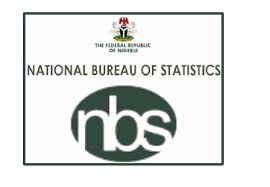The National Bureau of Statistics (NBS) has reported that Nigeria’s total capital importation last year stood at $12.228 billion, representing an increase of $7.104 billion or 138.7 per cent over the value of capital imported in the preceding year.
In the last quarter of 2017 capital importation stood at $5.382 billion, indicating an annual growth of 247.5 per cent, and a quarterly growth of 29.9 per cent. However, in the quarter under review, total capital imported when compared to the previous quarter increased by $1.2378 billion.
The Bureau in its analysis of the sectoral distribution of the capital importation, reported that Portfolio Investment accounted for the highest share in Q4 2017 with 64% of the total value while Other investments represented 28% and Foreign Direct Investment (FDI) at 7%.
According to the report, FDI was up in Q4 2017 over Q3 2017 by 221%, Portfolio up 25%, Other investment up 21%. The NBS attributed the surge in 2017 capital importation to an increase in Portfolio Investment, which went up by $5.516.2 billion from the previous year to reach $7.329.1 billion in 2017, and accounting for 60 per cent of capital imported.
On year-on-year, portfolio increased substantially posting 1,123.5 per cent or $3.193 billion (from $284.2 billion to $3.477.5 billion), and expanding faster than the two other components of capital importation.
FDI recorded $378.4 million in Q4, representing a year-on-year increase of 9.8 per cent, while Other Investment recorded $1.5267 billion, growing by 66 per cent when compared to Q4 of 2016.
“Portfolio Investment was the main driver of Capital Importation in the fourth quarter of 2017, with an amount of $3, 477.5 million, representing a quarter- on-quarter growth of 25.7%. Year-on-year, it increased by 1,123.5 per cent, which is over twelve times the figure recorded in Q4 2016 ($284.2 million).
“Money Market Instruments contributed 63% to Portfolio Investments. Equity, which had been the main driver of Portfolio Investments in previous quarters, dropped by $942.9 million, from $1,932.1 million in Q3, to $989.2 million in Q4 2017.
“On the other hand, Bonds recorded an increase of $194.1 million, from $115.4 million in Q3, to $309.5 million in Q4 of the same year,” it explained. Other Investment recorded $1.526 billion, accounting for 28.4 per cent of total capital importation in the fourth quarter of 2017”, the Bureau stated.
The Bureau reported that the $1.526 billion recorded by Other Investment was mainly in the form of loans, which was $1.091 billion in Q4, followed by Other Claims which recorded $425.7 million, and Trade credits which recorded $10 million, having posted no inflows since Q4 2016.
It noted further that Banking sector was the second leading sector with $543.4 million or 10.1 per cent of total capital importation, representing an increase of 5.8 per cent over the previous quarter’s volume. The sector was followed by Production, which had 5.9 per cent to total capital investment.
A further analysis of the capital importation trend on state-by-state basis showed that Abuja attracted the highest amount of foreign capital of $2,680.3 million or 49.8%, an increase of 227.8% from the figure recorded in the third quarter of 2017 ($817.6million) while Lagos dropped from 79.5% of total share in Q3 2017, to a share of 47.4% in Q4, 2017.
Other states including Akwa Ibom, Ogun, Oyo and Delta also attracted foreign capital investments.
On the foreign sources of investments, the Bureau reported a $1.609 billion, or 30 per cent of the total capital inflow from United Kingdom, accounting for the highest value of capital inflows.
This was a decline of 7.3 per cent, relative to the figure in the previous quarter and a 233.4 percentage growth over the corresponding period of last year.
The NBS stated further: “As well as the existence of an historical relationship between the UK and Nigeria, London (the capital of the UK) is also a key financial centre, which explains the high value of foreign capital from the UK. Since 2010, the UK has accounted for the highest value of capital importation in all but two quarters (both in the second half of 2015).
“The country accounting for the second largest value of capital importation was the United States. The U.S. accounted for $1,001.4 million in the fourth quarter of 2017, or 18.6%. The U.S. has also been one of the most important investors in Nigeria, usually either the largest or second largest investor country.
“It has also been historically the largest economy in the world and is active in foreign investment globally. The next two largest investors in the fourth quarter of 2017 were Belgium which accounted for 10.2% and Singapore (7.7%)”, the Bureau added.






